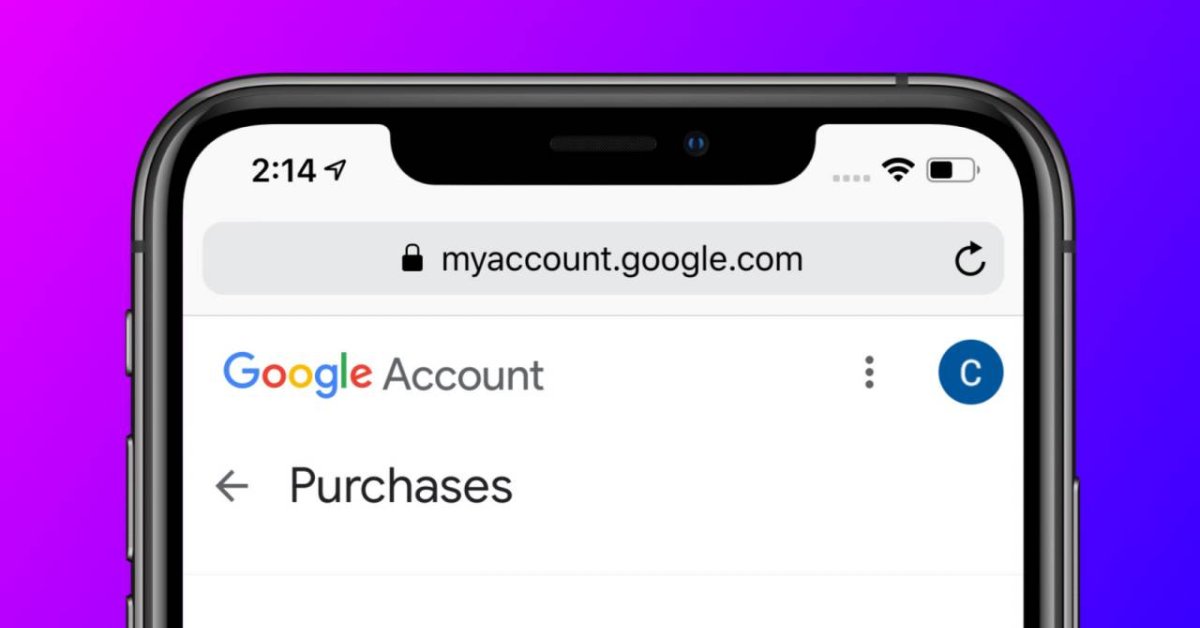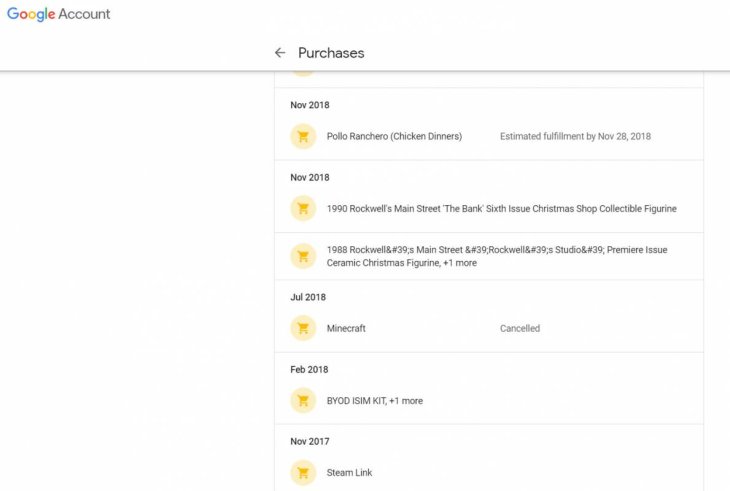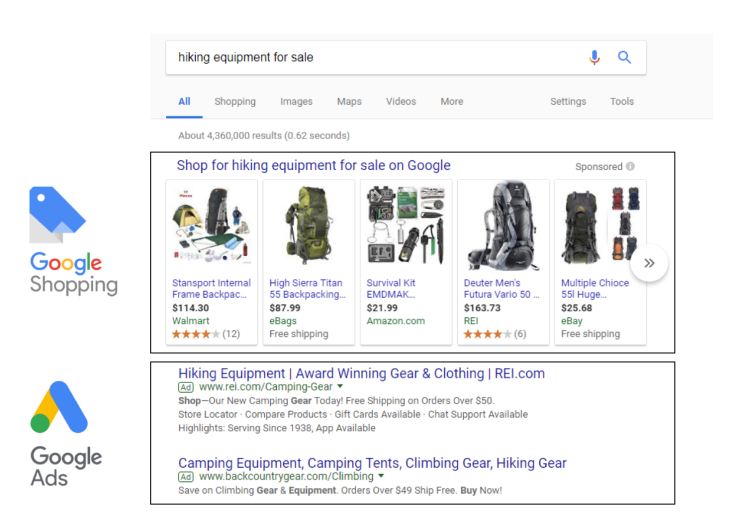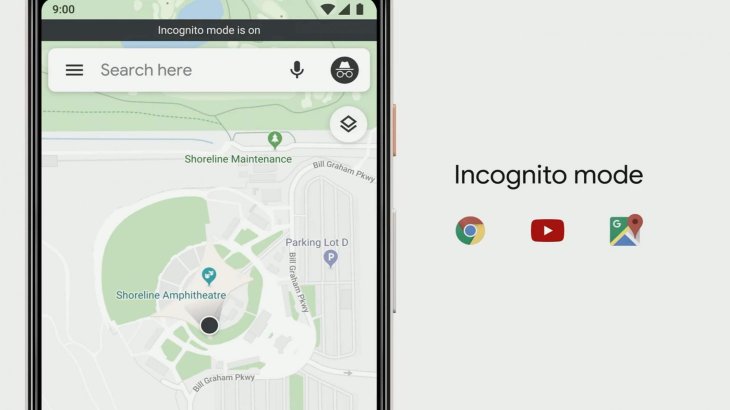Google Has Been Keeping Our Purchase History For Years Behind Our Back
Aadhya Khatri - May 20, 2019

The information of Google storing people's purchase history is discovered against a background of user privacy becoming more and more concerned
- Tech Leaders Question AI Agents' Value: Human Labor Remains More Affordable
- Google's Project Toscana: Elevating Pixel Face Unlock to Rival Apple's Face ID
- Google's Project Genie: Premium Subscribers Unlock Interactive AI-Generated Realms
Google knows everything you have purchased, and it is doing this without informing you. As long as receipts are sending back to you via emails, the company will know exactly what you have bought and everything else. More importantly, the tool for this act has been available for some time now and the company is harvesting this information behind your back.
Most people have at least one Gmail account, and they even link it to all kinds of other platforms for online purchases. For example, if you buy anything through the Apple App Store, the information of the transaction will be sent to your account. Even when you pay for anything with your credit card, your emails will store traces of that purchase too.

In answer to this finding, Google said that it stores the information to help users keep track of their bookings, subscriptions, and purchases by putting them in one place that only the user can see. They further confirmed that they did not use any of the data, including confirmations and email receipts for targeting ads or anything like that, and users may remove all of the information whenever they want. However, the company did not reveal the exact period of time in which the tool is active.
Google said that it did not use the data for advertisement, and in 2017, it announced that it would cease using data harvested from Gmail for personalized ads. Users have the choice to remove the information they do not want to store from the Purchases webpage, but there is no option to delete a few of them at a time.
As our lives are depending more and more on the Internet, we accidentally expose lots of our personal information for sites like Facebook and Google, including our likings, our habits, and of course, what we purchase. And again, like what happens with Facebook, Google collects the information it wants by doing it behind our back. In this case, the tool is Gmail purchase receipts.
However, making better ads is not the sole purpose of these companies when harvesting users’ data. As AI is becoming an increasingly important tool for every aspect of life, training them to have human’s ability and common senses is what experts are working hard to achieve. In the process, real data are fed to these systems so that they can learn from them. More importantly, the information is viewed by human monitors too.

This tool does not prove that Google exploits our information for something wicked, but it means that the company is far from transparent when it comes to how much Google is truthful to us of what it knows from us. This happens against a background of concerns over security and privacy.
The company has been under fire for the same reason for some time now, and this latest incident is just the next in line for what people are criticizing the company for.
If you are unaware of what Google has been doing behind our back in the last few years, here is a recap: A third-party app that helps developers harvest information from messages in Gmail, a function that will sync Gmail and web browsing, and a tool that helps advertisers forming an idea of how ads have helped translate to real-world purchases.
So far, all we know lead to a single answer. Google is providing us with web services and other products, in turn, it will harvest your personal data, and you can do almost nothing to stop that. The information will help Google knows what kind of ads to show you for maximum effect. This kind of doing business has brought the company a considerable fortune, making it one of the most valuable companies all over the world.
The tool to store your purchase information has been there for years, collecting who knows how much data from a vast number of people. Its existence raises the question of whether what Google CEO Sundar Pichai said in the company’s I/O this year credible or not. “Privacy cannot be a luxury good,” said he, which is a subtle mention to Apple and a confirmation that the company dedicated to being transparent about how much information it kept from users.
The company does introduce tools and improvements to show that it is serious about protecting users’ privacy. Some of the changes are to give people more control over what the company can keep and what not. They can also delete what they do not want anyone else to know. At its I/O conference, Google introduced another privacy policy for its home devices, which are known to have cameras and microphones onboard.
Users can now control the ads they see on Chrome by some new tools Google recently released. The Incognito Mode is also enhanced for Google Search and Google Maps. In 2018, the Incognito function also got improvement but only for YouTube.

For those who use Android as their mobile operating system, a piece of good news is that Android Q will come packing with tools for deleting data and transparency privacy. Recently, the company announced that users could auto-delete the data from apps, web, and location. Even if the time goes back up to 18 months. This list seems like a lot of improvements to help users protect their privacy online.
Google has addressed the tools that look threatening to users, but it does not mention what it is going to do with the ones that seem harmless but actually pack lots of potential threats. The company has been associated with a bad reputation as a firm that makes a profit by exploiting people’s personal information. And to convince users otherwise, it may take a lot more than what Pichai said in an I/O developer conference.
According to Prabhakar Raghavan, Senior Vice President of Engineering at Google, when asked about what he thought of the idea Google should set the privacy tools on by default, that approach was “ham-handed.” The interview was done before the company’s I/O conference happened.
Featured Stories

ICT News - Feb 20, 2026
Tech Leaders Question AI Agents' Value: Human Labor Remains More Affordable

ICT News - Feb 19, 2026
Escalating Costs for NVIDIA RTX 50 Series GPUs: RTX 5090 Tops $5,000, RTX 5060 Ti...

ICT News - Feb 18, 2026
Google's Project Toscana: Elevating Pixel Face Unlock to Rival Apple's Face ID

Mobile - Feb 16, 2026
Xiaomi Launches Affordable Tracker to Compete with Apple's AirTag

ICT News - Feb 15, 2026
X Platform Poised to Introduce In-App Crypto and Stock Trading Soon

ICT News - Feb 13, 2026
Elon Musk Pivots: SpaceX Prioritizes Lunar Metropolis Over Martian Colony

ICT News - Feb 10, 2026
Discord's Teen Safety Sham: Why This Data Leak Magnet Isn't Worth Your Trust...

ICT News - Feb 09, 2026
PS6 Rumors: Game-Changing Specs Poised to Transform Console Play

ICT News - Feb 08, 2026
Is Elon Musk on the Path to Becoming the World's First Trillionaire?

ICT News - Feb 07, 2026
NVIDIA's Gaming GPU Drought: No New Releases in 2026 as AI Takes Priority
Read more

ICT News- Feb 19, 2026
Escalating Costs for NVIDIA RTX 50 Series GPUs: RTX 5090 Tops $5,000, RTX 5060 Ti Closes in on RTX 5070 Pricing
As the RTX 50 series continues to push boundaries in gaming and AI, these price trends raise questions about accessibility for average gamers.

ICT News- Feb 18, 2026
Google's Project Toscana: Elevating Pixel Face Unlock to Rival Apple's Face ID
As the smartphone landscape evolves, Google's push toward superior face unlock technology underscores its ambition to close the gap with Apple in user security and convenience.

ICT News- Feb 20, 2026
Tech Leaders Question AI Agents' Value: Human Labor Remains More Affordable
In a recent episode of the All-In podcast, prominent tech investors and entrepreneurs expressed skepticism about the immediate practicality of deploying AI agents in business operations.
Comments
Sort by Newest | Popular